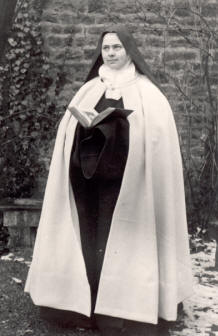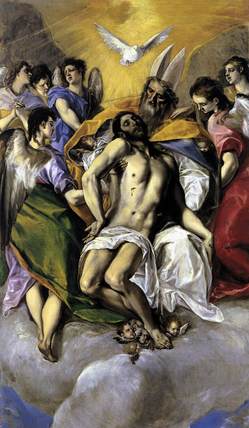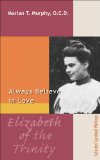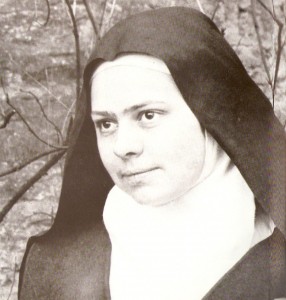 One of the local Dominican friars put me on to the life and insight of the French Carmelite nun, Blessed Elizabeth of the Trinity (whose feast is November 8). Thinking of this Blessed woman on Trinity Sunday draws me to think more deeply of what Love is in my own life and how it exists.
One of the local Dominican friars put me on to the life and insight of the French Carmelite nun, Blessed Elizabeth of the Trinity (whose feast is November 8). Thinking of this Blessed woman on Trinity Sunday draws me to think more deeply of what Love is in my own life and how it exists.
Blessed Elizabeth (1880-1906) had a personal mission of making the Holy Trinity better known and widely loved by every Christian. Hers is a manner of living the baptismal consecration we have received by the power of the Holy Spirit as a gift of living in the Father, Son and Spirit who make Their home within us (cf. Jn 14:23). Some of the many things she said:
The Trinity – this is our dwelling, our ‘home’, the Father’s house that we must never leave.
I think that in heaven my mission will be to draw souls, by helping them go out of themselves to cling to God by a wholly simple and loving movement, and to keep them in this great silence within, that will allow God to communicate Himself to them and transform them into Himself.
To her mother she said: Oh, may the Master reveal to you His divine presence, it is so pleasant and sweet, it gives so much strength to the soul; to believe that God loves us to the point of living in us, to become the Companion of our exile, our Confidant, our Friend at every moment.
A Christmas poem of 1901 states: He comes to reveal the mystery, To give all of the Father’s secrets, To lead from glory to glory, Even unto the bosom of the Trinity.”
Why is Blessed Elizabeth of the Trinity important for today? Why is this very young Carmelite nun relevant to my experience of faith? True to the meaning of her name, Elizabeth (means ‘house of God’), she communicated to the world that “God wants to make is His home in us.” She is widely admired and her writings are read the important and common persons because people seen in them a certain authenticity, a call to go deeper into the mystery of Love, that is, God Himself. Many call Blessed Elizabeth a “prophet for our time” saying that she heard God’s call, and speaks the truth to us today. In his beatification homily Pope Saint John Paul said that Elizabeth is “a brilliant witness to the joy of being ‘rooted and grounded in love'” (Eph 3:17). Can we say the same for ourselves?
Years later in the mid-20th century the Servant of God Father Luigi Giussani would echo the teaching of Blessed Elizabeth by reminding his followers that God is not an abstraction, an idea, a figure of ages past. But that God is a Presence here-and-now, contemporaneous with human experience. Blessed Elizabeth and Father Giussani would indicate that a true Christian cannot claim with any degree of seriousness that we are surrounded by God as by air, light or energy, BUT that God is present within us; that God is at home in the human heart, that He exists in our concrete experience; that the newness of Christianity is that God wants to be in relationship with each person, and that God really cares and loves us. God incarnate –Jesus Christ– is not absent but truly present in every facet of human life. We know this by way of His eucharistic Presence.
Blessed Elizabeth’s writings reveal an awareness of the indwelling presence of God. She wished to “live through love in his presence” and to be in communion with Him for ever.
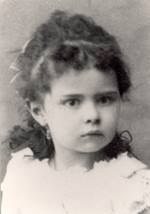 Blessed Elizabeth of the Trinity, OCD, is honored on this date by Mother Church but because it is Sunday, her feast is either transferred or not commemorated in the sacred Liturgy today. She lived from 1880-1906 and beatified by Pope John Paul II on November 25, 1984.
Blessed Elizabeth of the Trinity, OCD, is honored on this date by Mother Church but because it is Sunday, her feast is either transferred or not commemorated in the sacred Liturgy today. She lived from 1880-1906 and beatified by Pope John Paul II on November 25, 1984.
